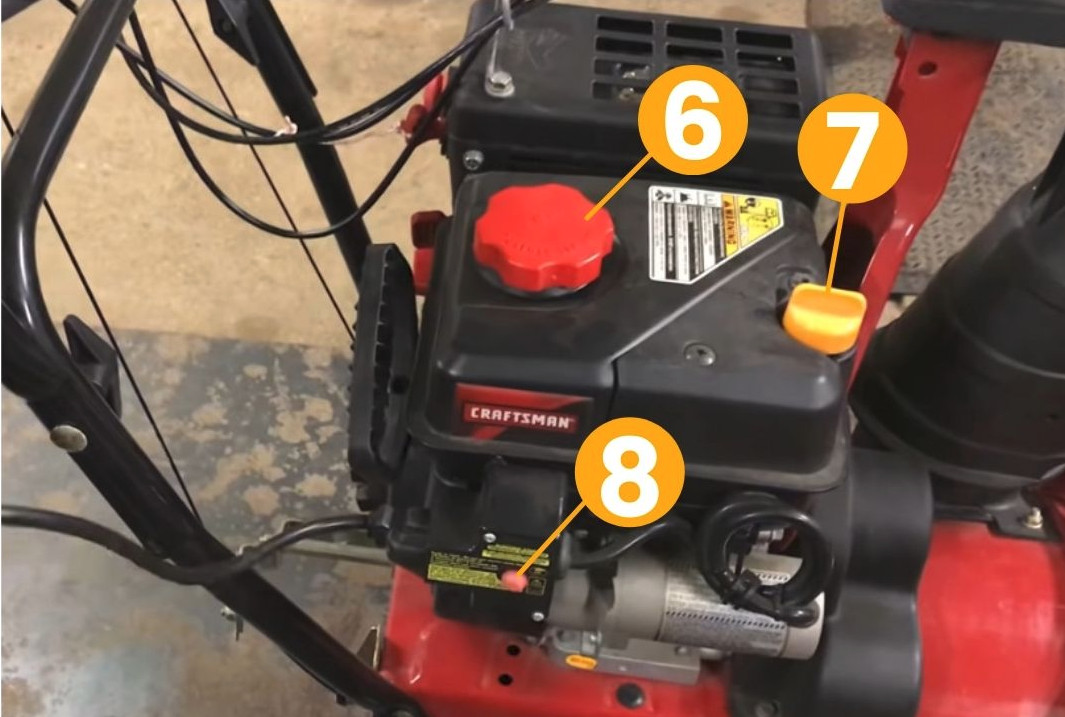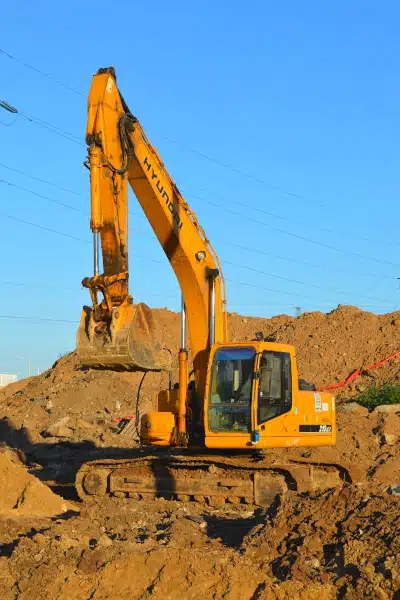Starting Your Snow Blower - A Detailed Guide
Oct. 11, 2021
Getting your snow blower starter is quick and easy when you follow our easy step-by-step guide.

We all know that feeling that happens the first time it snows - we go out to the garage to start the snow blower, and we cannot remember exactly how to do it.
Luckily, starting a snow blower is fairly easy and common for most major brands like Craftsman, Toro, Honda, John Deere, Simplicity, Ariens, and more. We put together this brief guide along with some labeled images to help you get your snow blower going this winter.
Also, be sure to check out the Other Useful Tips section to keep your snow blower in top shape.
Steps To Start Your Snow Blower
- First, open the fuel shutoff valve if it has one. This is only found on certain snow blowers (for instance, Toro 2-stage snow blowers).
- Press primer bubble twice if it is 15 degrees Fahrenheit or warmer, or four times if it is below 15 degrees Fahrenheit.
- Insert the ignition or safety key.
- Rotate or pull the choke to the on position.
- Move the throttle to the fast position.
- Plugin your electric starter extension cord if you are going to use it.
- Pull the recoil starter, or press the electric starter.
- Unplug the extension cord after the engine has started if you used an electric starter.
- After the engine is started and warmed up, move the choke to the run position.
Snow Blower Diagram Legend
Below we have labeled two common models of Toro and Craftsman snow blowers so you can understand and visualize the components. The numbered list below identifies each of the labels.
- Primer
- Safety / starter key
- Throttle
- Choke
- Recoil starter
- Gas tank
- Oil tank
- Electric starter
Craftsman Snow Blower Guide


Source: Image from Johnson's Small Engines on YouTube (link below), labels by Equipment Radar
Toro Snow Blower Guide


Source: Image from Toro on YouTube (link below), labels by Equipment Radar
How To Position The Snow Blower Choke
- Close the choke fully for cold conditions.
- Close choke 1/2 or 3/4 for starting in 30 degrees Fahrenheit or warmer.
- Do not close the choke if you are restarting the snow blower less than five minutes after shutting it down. After five minutes, then restart it as you would with a normal start.
Important Notes If Your Snow Blower Does Not Start
If the engine does not start immediately, do not keep cranking on the electric starter button because you could burn out the starter. Do short five second cycles of the starter, and no more than 10 attempts. Allow at least 10 seconds between attempts.
If the snow blower still does not start, there might be another issue going on. Check your manual, or talk with your dealer for troubleshooting.
Over-Primed Snow Blower
If you smell gas fumes when you start the engine, you might have over-primed and the engine could be flooded. If this happens, shut off the choke, close the fuel shutoff (if your machine has one), pull the recoil three times to remove excess gas out of the engine, and wait 15 minutes before attempting to start it again. Remember to open the fuel shutoff valve again when you go to restart it.
Recoil Versus Electric Start
Recoil (pull-string) start is found on all snow blowers; however, electric start is found only on some snow blowers because many manufacturers are removing them from models. Most snow blower owners choose to use electric start feature to avoid the physical work associated with the recoil start.
Recoil start will always work to start your snow blower, but electric start will only work if you have an electric start cord plugged into an electric outlet and your snowblower.
Other Useful Tips
- Electric starter cords should not be over 8-10 feet long, otherwise they can hurt the electric starter. The longer the cord, the less powerful the draw that makes it to the electric starter.
- If you are wearing bulky gloves, it is best practice to remove your glove to press the priming button so you get a more consistent priming that way.
- If your mower uses gasoline, use premium 92-octane or above gasoline for it. This helps ensure a long engine life for your snow blower.
- Always check your mower's oil levels before starting it.
- Always make sure you have more than 1/4 tank of gas before starting your snow blower.
- If your snow blower uses a starter or safety key, you can tie a string around it and attach it to the snow blower, so it does not get lost in the snow.
- You can pull the starter or safety key out if you need to shut off your engine quickly.
- Once you start your engine, let it run for a few minutes to warm up. Look for abnormal color smoke (blue, etc.) as that could indicate engine issues.
- Remember to change your snow blower oil and oil filter according to manufacturer specifications.
Resources
Starting a Craftsman snow blower
Starting a Toro snow blower



